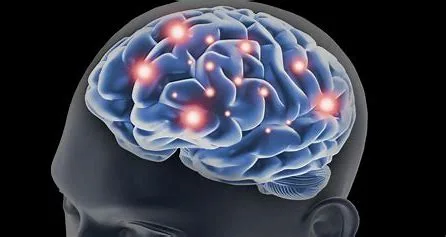Alzheimer’s disease is a devastating neurodegenerative condition that affects millions of people worldwide. While researchers have made significant strides in understanding this complex disease, there is still much to learn about its causes and potential treatments. One intriguing area of study is the relationship between Alzheimer’s and dopamine, a neurotransmitter known for its role in mood, pleasure, and movement.
In this article, we will delve into the fascinating connection between Alzheimer’s disease and dopamine, shedding light on the intricate interplay between these two elements.
Understanding Alzheimer’s Disease
Before we explore the relationship between Alzheimer’s and dopamine, it’s essential to have a basic understanding of Alzheimer’s disease. Alzheimer’s is a progressive brain disorder that primarily affects memory, cognitive functions, and behavior. The hallmark characteristics of Alzheimer’s include the accumulation of beta-amyloid plaques and tau protein tangles in the brain, which leads to the death of brain cells and the gradual deterioration of cognitive abilities.
Dopamine: The Brain’s Messenger
Dopamine is a crucial neurotransmitter in the brain. It plays a pivotal role in regulating various functions, including mood, motivation, reward, and motor control. Dopamine is produced in several brain regions, with the substantia nigra and the ventral tegmental area being primary sources. It communicates messages between neurons, allowing them to transmit signals in a complex network.
The Dopamine-Alzheimer’s Connection
While Alzheimer’s disease is primarily characterized by the accumulation of beta-amyloid and tau protein, researchers have begun to investigate the role of dopamine in the disease’s development and progression. Here are several aspects of the relationship between Alzheimer’s and dopamine:
- Dopamine Levels in Alzheimer’s Patients
Research suggests that individuals with Alzheimer’s disease may exhibit alterations in dopamine levels. Some studies have reported reduced dopamine receptor density in the brains of Alzheimer’s patients, which could impact cognitive and motor function. The precise mechanisms underlying these changes are still under investigation, but it raises questions about whether dopamine dysregulation plays a role in the disease’s development.
- Dopamine’s Role in Memory and Learning
Dopamine is known to be crucial for memory and learning processes. In Alzheimer’s, the progressive decline in cognitive function, including memory, is a central feature of the disease. The connection between dopamine and memory suggests that alteration in dopamine signaling pathways could contribute to the cognitive deficits seen in Alzheimer’s patients.
- Dopaminergic Medications in Alzheimer’s Treatment
While there is no cure of Alzheimer’s disease, some medications used to manage its symptoms are known to interact with the dopamine system. For example, drugs such as cholinesterase inhibitors and memantine, commonly prescribed to Alzhemer’s patients, may have indirect effects on the dopamine system. These medications aim to improve cognitive function and behavior, and understanding their interactions with dopamine receptors is an area of ongoing research.
- The Impact of Neuroinflammation
Neuroinflammation is a key feature of Alzheimer’s disease, with microglial cells playing a central role. These cells release inflammatory molecules, including cytokines, that can impact the dopamine system. Neuroinflammation in the brain may disrupt the balance of dopamine neurotransmission, potentially contributing to cognitive decline and other symptoms of Alzheimer’s.
- Dopamine’s Relationship with Other Alzheimer’s Biomarkers
Dopamine’s connection with Alzheimer’s extends beyond cognitive functions. It may also interact with other key biomarkers of the disease, such as beta-amyloid and tau protein. Research has suggested that dopamine dysregulation could influence the accumulation and clearance of these pathological proteins, further complicating our understanding of the disease.
The Potential Implications and Future Directions
As we uncover the complex relationship between Alzheimer’s and dopamine, several potential implications and future directions become evident:
- Early Detection: Studying the role of dopamine in Alzheimer’s could lead to the development of novel diagnostic tools. Detecting dopamine-related changes in the brain may offer insights into the disease’s progression at an earlier stage, allowing for more effective intervention.
- Targeted Therapies: Understanding the interplay between Alzheimer’s and dopamine could pave the way for innovative treatment strategies. Targeted therapies that focus on dopamine regulation may become a new avenue for slowing down or even preventing cognitive decline in Alzheimer’s patients.
- Personalized Medicine: Alzheimer’s is a highly heterogeneous disease, and individuals may respond differently to treatment. Recognizing the diversity in how dopamine interacts with the disease could facilitate personalized treatment plans tailored to each patient’s specific needs.
- Multimodal Approaches: Given that Alzheimer’s is a multifaceted condition, future research may explore the potential benefits of combining traditional treatment methods with approaches that modulate dopamine function. This multidisciplinary approach could lead to improved outcomes for patients.
- Lifestyle Interventions: Lifestyle factors, including diet, exercise, and social engagement, have been associated with both Alzheimer’s risk and dopamine regulation. A better understanding of the dopamine-Alzheimer’s connection may promote lifestyle interventions that help reduce the risk of developing the disease.
In conclusion, the relationship between Alzheimer’s and dopamine is a topic of great interest in the field of neurodegenerative research. While we have made significant strides in understanding the disease’s underlying mechanisms, there is much more to discover.
As investigations on these relationships continue, the hope is that a deeper understanding will lead to more effective treatments and interventions for Alzheimer’s disease. It’s clear that the interplay between Alzheimer’s and dopamine is a promising avenue for future research, and it may hold the key to unlocking new insights into this devastating condition.
As researchers continue to unravel the mysteries of Alzheimer’s disease, we can remain hopeful that a comprehensive understanding of the dopamine-Alzheimer’s connection will lead to more effective treatments, earlier diagnosis, and improved quality of life for those affected by this challenging condition. This ongoing exploration represents a crucial step in the pursuit of a world without Alzheimer’s disease.

